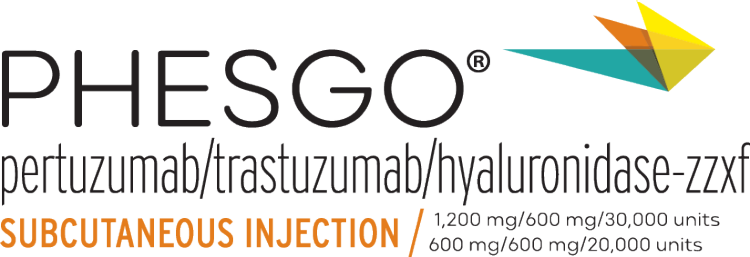Side effects may occur during treatment with PHESGO.
It’s important to know what side effects may happen and what to watch out for during your treatment with PHESGO. Talk to your doctor about any and all side effects you experience, even if you think they are minor.
Most serious side effects of PHESGO
- PHESGO may cause heart problems, including those without symptoms (such as reduced heart function) and those with symptoms (such as congestive heart failure)
- Receiving PHESGO during pregnancy can result in the death of an unborn baby and birth defects
- PHESGO may cause serious lung problems
- Other possible serious and sometimes fatal side effects of PHESGO therapy include:
- Worsening of low white blood cell counts caused by chemotherapy
- Severe allergic reactions (hypersensitivity reactions/anaphylaxis) and administration-related reactions
Most common side effects of PHESGO
The most common side effects of PHESGO when given with chemotherapy as part of an early breast cancer regimen are hair loss, nausea, diarrhea, low levels of red blood cells, and weakness.
The most common side effects of PHESGO when given with docetaxel for treatment of breast cancer that has spread to other parts of the body (metastatic) are diarrhea, hair loss, low levels of white blood cells with or without fever, nausea, feeling tired, rash, and damage to the nerves (numbness, tingling, pain in hands/feet).
Tips that can help
Remember, the tips mentioned below may not work for everyone. Be sure to talk to your doctor before trying any of these tips or if you experience any side effects that bother or concern you. Depending on how bothersome or serious the side effects are, your doctor may decide that you should take a break from treatment until they get better or go away.

